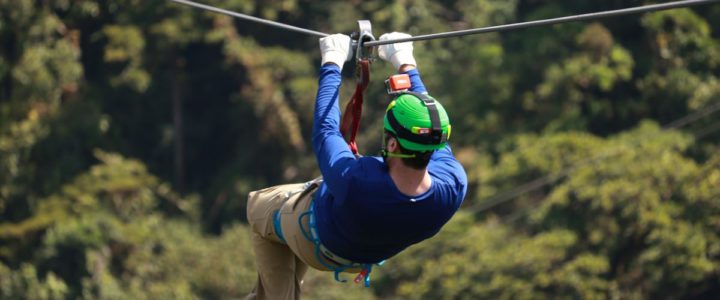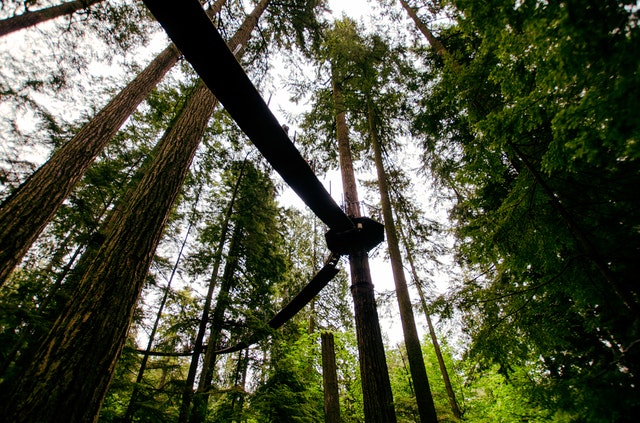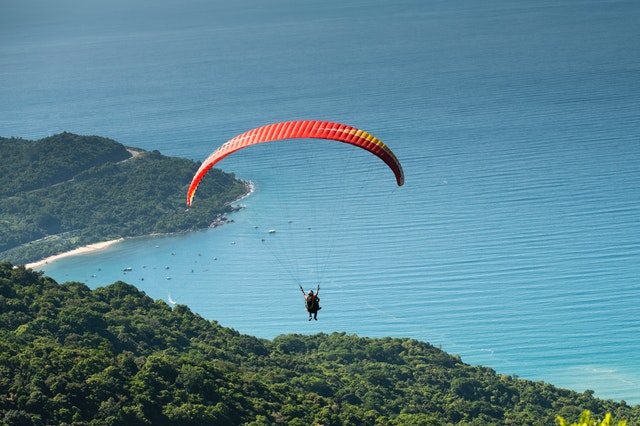Spending quality time with kids is essential for strengthening the bond and creating lasting memories. One exciting way to engage with them is by visiting a ninja playground and fitness centre, where they can enjoy thrilling activities while improving their agility. Another great option is tackling a ninja warrior obstacle course, a fun and interactive challenge that fosters teamwork and boosts confidence. However, balancing work and family can be tricky, so delegating some essential tasks, like hiring bookkeeping services in Melbourne, allows you to focus on what truly matters—cherishing time with your loved ones.
Get Active Together
Physical activities are a fantastic way to bond while staying healthy. Consider going for bike rides, hiking, or even trying out new sports together. Playing a simple game of soccer in the backyard or heading to the local skate park can turn an ordinary day into an adventure. The key is to participate rather than just watch, making it a shared experience rather than a spectator activity.
Cook and Bake as a Team
 Kids love getting involved in the kitchen, and cooking together is a great opportunity to bond. Choose fun and simple recipes like homemade pizza, cupcakes, or pancakes. Let your kids take charge of specific tasks, such as mixing batter, decorating, or setting the table. This activity teaches responsibility while making the process more enjoyable.
Kids love getting involved in the kitchen, and cooking together is a great opportunity to bond. Choose fun and simple recipes like homemade pizza, cupcakes, or pancakes. Let your kids take charge of specific tasks, such as mixing batter, decorating, or setting the table. This activity teaches responsibility while making the process more enjoyable.
Creative Arts and Crafts
Unlock creativity by engaging in arts and crafts. Whether it’s painting, making DIY greeting cards, or building models, these activities encourage self-expression and fine motor skills. Try creating a scrapbook of family memories or even making homemade gifts for relatives. The joy of crafting together builds a sense of accomplishment and closeness.
Storytime and Reading Adventures
Reading together is a timeless bonding activity. Pick a book series that excites both you and your kids, and make it a ritual to read together before bedtime. You can even create your own stories and take turns adding to the plot. This not only strengthens your connection but also enhances their imagination and vocabulary.
Plan a Family Game Night
Board games and puzzles are great ways to encourage teamwork, critical thinking, and laughter. Choose age-appropriate games that everyone can enjoy. Classics like Monopoly, Scrabble, or Jenga are excellent choices, while newer strategy-based games can also provide excitement.
Explore the Outdoors
Nature offers endless opportunities for bonding. Plan a picnic at the park, go for a nature walk, or have a backyard camping night complete with storytelling and stargazing. Outdoor scavenger hunts can add an element of fun, allowing kids to explore and discover new things while working together.
Build Something Together
Engage in hands-on projects like building a treehouse or birdhouse or even assembling furniture together. Kids love the sense of achievement that comes from creating something with their hands. Whether it’s LEGO structures, wooden crafts, or even gardening, these projects foster teamwork and patience.
Music and Dance Sessions
Put on some music and have a dance party right in your living room. Let your kids choose the songs and take turns showcasing dance moves. You can even have a karaoke night where everyone sings along to their favourite tunes. Music brings joy and encourages self-expression while making for an incredibly fun bonding experience.
Teach Life Skills Through Fun Activities
Bonding doesn’t always have to be about play; it can also involve learning essential life skills in a fun way. Teach your kids how to do simple home repairs or even basic budgeting through engaging, interactive methods. Making these tasks enjoyable instils valuable lessons while spending quality time together.
Gardening Together
Gardening is a fantastic way to connect with kids while teaching them about nature and patience. Encourage them to plant their own flowers or vegetables and see them grow over time. Watering, weeding, and harvesting together can be a relaxing and rewarding experience for the whole family.
Volunteer as a Family
Teaching kids the importance of giving back can be a powerful bonding activity. Look for local community service opportunities such as food drives, park clean-ups, or pet shelters where you can volunteer together. Not only does this instil empathy and responsibility, but it also strengthens family values.
Have a Tech-Free Day
In today’s digital world, setting aside a day without screens can create meaningful interactions. Plan a day filled with board games, storytelling, outdoor activities, and engaging conversations. Taking some time off from technology allows for deeper connections and fosters genuine moments together.
Surprise Each Other
Make bonding spontaneous by occasionally surprising each other with small gestures. A surprise picnic, a handmade card, or even an unexpected adventure can make ordinary days feel special. Encouraging kids to surprise their parents with simple acts of kindness also strengthens emotional connections.
Whether through outdoor adventures, creative projects, or shared learning experiences, the goal is to be present and engaged. By finding fun ways to bond, you not only strengthen relationships but also create cherished memories that last a lifetime.



 Consider integrating multifunctional features, such as garden beds that double as seating areas or trellises with flowering vines for shade. These elements enhance usability while blending seamlessly into the natural environment.
Consider integrating multifunctional features, such as garden beds that double as seating areas or trellises with flowering vines for shade. These elements enhance usability while blending seamlessly into the natural environment.
 Ziplines have existed for centuries in one form or another. However, they didn’t gain popularity until the ’70s when wildlife biologists working in Central America began pruning cables from tree to tree to easily manoeuvre the tropical rainforest canopy. That system allowed scientists to examine the local ecosystems without destroying the flora and fauna on the rainforest floor. This led to the first rise in canopy and zipline tours — as a way of eco-tourism.
Ziplines have existed for centuries in one form or another. However, they didn’t gain popularity until the ’70s when wildlife biologists working in Central America began pruning cables from tree to tree to easily manoeuvre the tropical rainforest canopy. That system allowed scientists to examine the local ecosystems without destroying the flora and fauna on the rainforest floor. This led to the first rise in canopy and zipline tours — as a way of eco-tourism.


 Neutral colour palettes have a timeless appeal that transcends fads and fashions. Colours like white, beige, grey, and muted earth tones create a sense of calm and sophistication in any space. These hues serve as the perfect backdrop for a wide range of design styles, from traditional to modern.
Neutral colour palettes have a timeless appeal that transcends fads and fashions. Colours like white, beige, grey, and muted earth tones create a sense of calm and sophistication in any space. These hues serve as the perfect backdrop for a wide range of design styles, from traditional to modern.


 Combining elements of classic Halloween characters, the Corpse Bride Zombie is both eerie and beautiful. Achieve a ghostly, ethereal appearance by putting on a pale base, then accentuate your eyes with dark, dramatic makeup. For an added touch of haunting elegance, consider using
Combining elements of classic Halloween characters, the Corpse Bride Zombie is both eerie and beautiful. Achieve a ghostly, ethereal appearance by putting on a pale base, then accentuate your eyes with dark, dramatic makeup. For an added touch of haunting elegance, consider using 












 If your kid is not a fan of the outdoors, there are also indoor school holiday programs running. Particularly, coding camps funded by the government, with
If your kid is not a fan of the outdoors, there are also indoor school holiday programs running. Particularly, coding camps funded by the government, with 
 Earl Strickland, an American professional pool player who was nicknamed ‘The Pearl’ and is considered one of the best pool players of all time.
Earl Strickland, an American professional pool player who was nicknamed ‘The Pearl’ and is considered one of the best pool players of all time. 



















 It’s the unique design of wooden bicycles, and their bespoke
It’s the unique design of wooden bicycles, and their bespoke 





 Constructed in Auckland from 2016, the pop-up Globe Theatre was to mark the 400th year of Shakespeare’s departure and following a few sell-out seasons coming to
Constructed in Auckland from 2016, the pop-up Globe Theatre was to mark the 400th year of Shakespeare’s departure and following a few sell-out seasons coming to 




 Creating your house from the ground up can be an exceptionally satisfying experience. It offers you the chance to
Creating your house from the ground up can be an exceptionally satisfying experience. It offers you the chance to  No matter how much you believe the building procedure is most likely to cost, it’s most likely to cost more. There could be any variety of products that aren’t considered in the quote your contractor o ffers you. For example, your home builder is not likely to consider expenses such as electrical and gas metres, NBN connections or window coverings. Products such as landscaping and outside concreting, fences and gates, decking and letterboxes may likewise not be consisted of on the quote. These add-on expenses can especially run over
No matter how much you believe the building procedure is most likely to cost, it’s most likely to cost more. There could be any variety of products that aren’t considered in the quote your contractor o ffers you. For example, your home builder is not likely to consider expenses such as electrical and gas metres, NBN connections or window coverings. Products such as landscaping and outside concreting, fences and gates, decking and letterboxes may likewise not be consisted of on the quote. These add-on expenses can especially run over 
